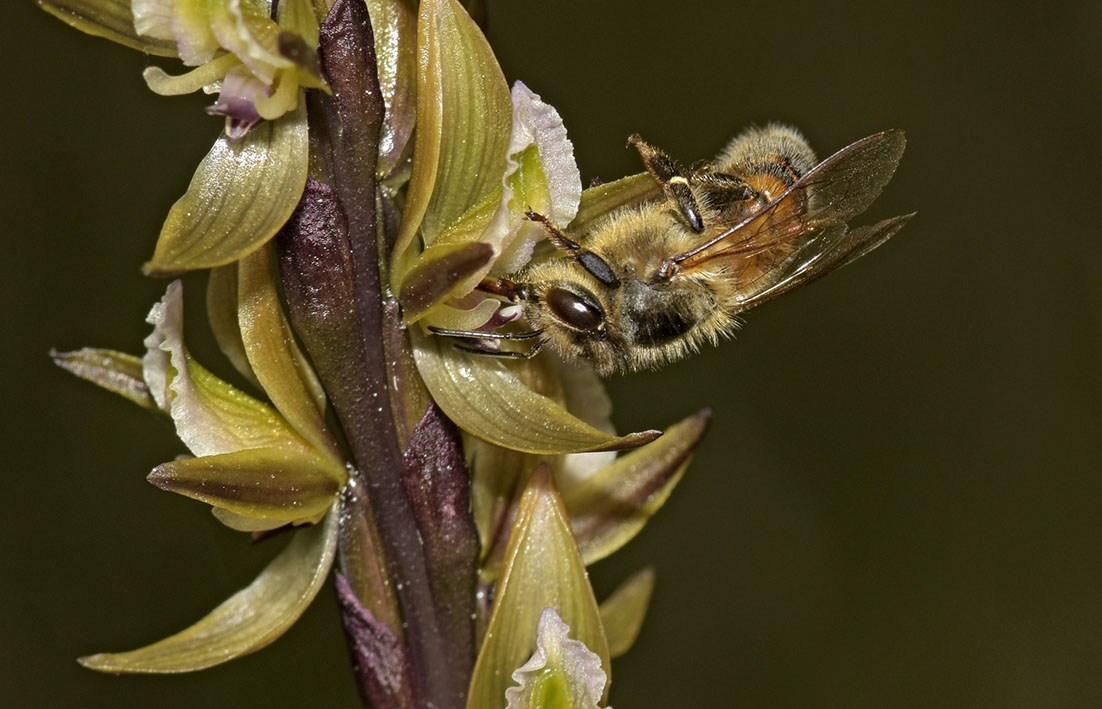
RESEARCH completed in Kalamunda and Lesmurdie has contributed to a global study of orchids and invasive species of honeybees.
The study tracked 120 orchid species across the world, and included research conducted in the city of Kalamunda.
Curtin University researcher Dr Daniela Scaccabarozzi led the Western Australian portion of the study and found that non-native bees often act as ‘pollen-wasters’, taking more pollen from orchids than they put in and disrupting the natural pollination process.
This means the orchids are not being pollinated or reproducing as they should, contributing to the endangered status of the plant family.
During her field research in the Jarrah forests of the Perth Hills, Dr Scaccabarozzi observed and analysed multiple vegetation sites to compare the impact of native and non-native pollinators on the orchids in the area.
From measuring both the reproductive and pollination rates of the orchids, she found there was a significant difference in the impact of native and non-native bee species.
“Sites with native bee pollinators had a positive impact on our study species, whereas pollination was ineffective in areas where native pollinators were absent. This issue was further exacerbated by habitat fragmentation. In fragmented habitats – where patches of habitat are disconnected due to clearance – native pollinators were lacking,” she said.
“Our finding in the Perth Hills show that orchid reproductive success was strong in sites with continuous Jarrah forest. However, in sites near urbanised areas, where native bee pollinators were absent, the orchids exhibited very low reproduction rates, potentially threatening the long-term survival of their populations.”
Dr Scaccabarozzi and her team proposed two management strategies for the endangered orchids and their pollinators.
First, she said habitat connectivity should be prioritised; allowing native pollinators to move between habitats would improve their ability to pollinate a wider group of plants.
Also, she said the management of introduced honeybees would be vital; limiting the number of non-native hives in an area would give native bees a better chance.
Dr Scaccabarozzi said although their research found non-native bees could pollinate native plants, they were much less efficient than native pollinators.
“From our global review studying cases around the world, we found that while there are instances where introduced honeybees contribute to orchid pollination, these cases are in the minority compared to the more frequent instances where introduced honeybees are ineffective at pollinating orchid species, wasting pollen of orchids without effectively depositing it,” she said.
“This issue requires further investigation, as the impact of introduced honeybees on ecosystems remains debated.
“However, since our findings indicate that habitat fragmentation is a major factor, we believe the priority should be preserving native pollinator networks to maintain ecosystem balance and, where possible, ensure high connectivity.”